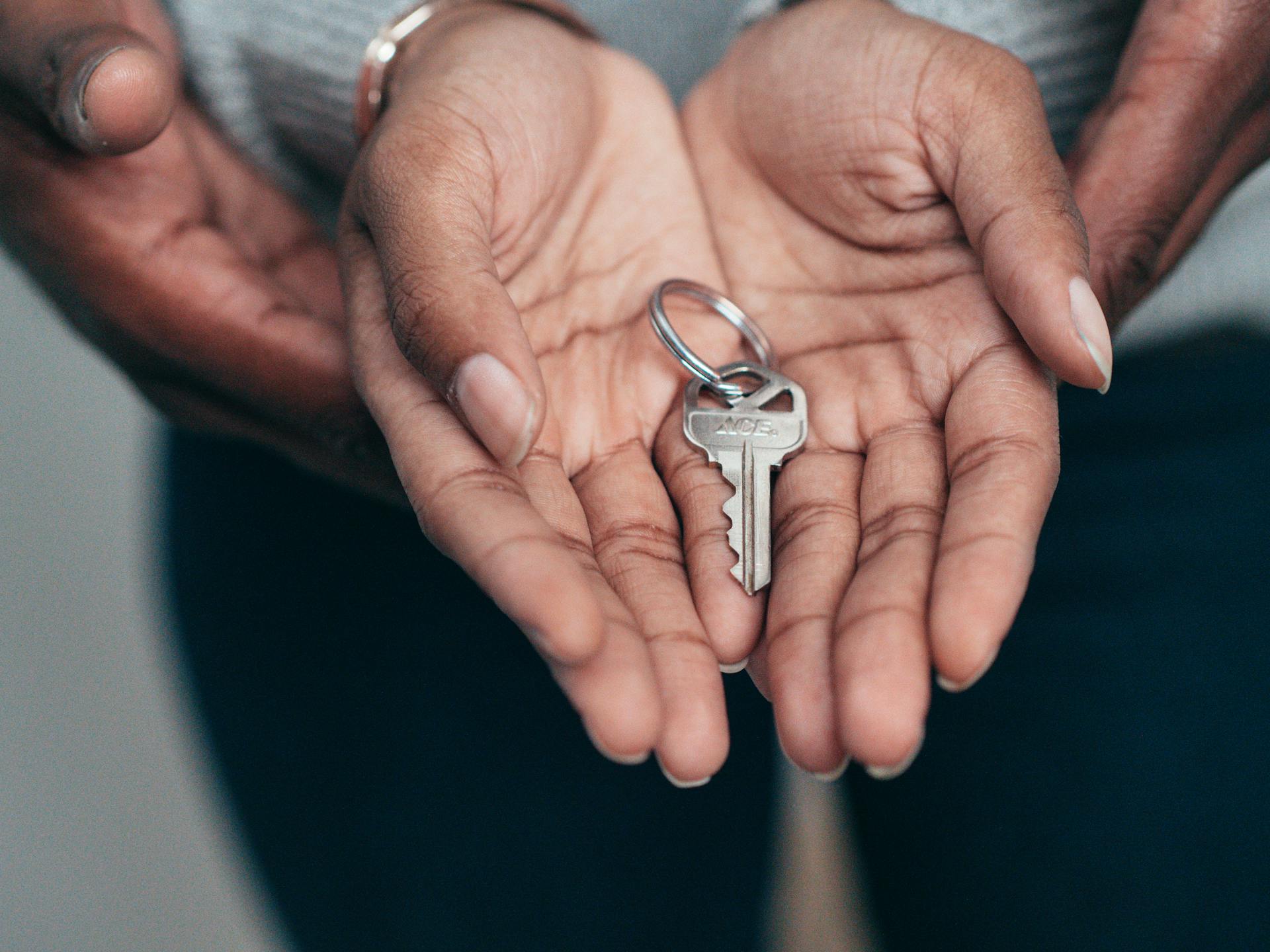
If you're in the market for a new home loan, you've likely heard the term "mortgage points" thrown around. But what exactly are they, and should you consider buying them? Put simply, mortgage points are fees that you pay upfront to your lender in exchange for a lower interest rate based on your personal financial situation. On March 29, 2023, when you close on your house, you'll pay interest on your home loan based on this rate.
If your finances are in great shape with strong income and minimal debts, buying mortgage points could be a smart move. By paying additional fees upfront, you can secure a lower interest rate which can save you money over the life of your loan. However, if your finances aren't ideal or if you have a higher rate already offered to you due to things like poor credit or high debt-to-income ratios, buying mortgage points may not make sense.
In this handy guide, we'll explain how mortgage points work and how they're calculated so that you can make informed decisions during the home buying process. We'll also provide expert recommendations on when buying mortgage points makes sense and when it doesn't. And best of all, with many lenders offering online applications these days, checking real interest rates and applying for mortgage points is easier than ever before.
You might enjoy: Adjustable Rate Mortgage
Discover the Basics of Mortgage Points and Their Expenses
If you're considering a home purchase, you may have heard about mortgage points. Essentially, buying mortgage points means you're prepaying interest on your home loan amount. By doing so, you can receive a lower interest rate and a smaller monthly payment. However, it's important to understand that this will increase your closing costs.
A discount point is typically equal to 1% of your home loan amount and can lower your interest rate by a set percentage point. The per-point discount you'll receive varies depending on the lender offers and the type of loan you choose. Generally, expect to pay $1,000 for every 175 mortgage points purchased on a $175,000 loan with an interest rate of 4%.
If you're planning on owning your home for over 30 years or paying off your loan early, buying points may not be worth the cost. However, if you have an adjustable-rate mortgage loan or plan to stay in your home for at least 7 years, buying points could save you money in the long run. Ultimately, the decision to make buying points depends on your individual circumstances and whether the expense is worth it for a lower interest rate.
1. How Mortgage Points Differ From Mortgage Origination Points
Many people confuse mortgage points with mortgage origination points, but they are not the same thing. Mortgage points are a type of prepaid interest that can help lower your interest rate over the life of your loan. On the other hand, term mortgage origination points are origination fees paid to your mortgage lender or loan officer depending on your credit score and other factors. Understanding the differences between these two types of points can help you make better decisions when it comes to financing your home.
2. See What You Qualify For
Are you a first-time homebuyer who wants to save some money on your home loan? Then you should check out mortgage points! By paying upfront fees, you can lower your long-term mortgage costs. To see what you qualify for, simply visit the Rocket Mortgage sign-in page and click on the "See What You Qualify For" tab. Your home description and credit profile will automatically pop up, and you can enter your contact information to get started. And congratulations - based on your eligibility, you could be saving big during the home loan process online! Don't worry, our privacy policy ensures that we resolve claims related to the Telephone Consumer Protection Act.
What Does Breakeven Point Mean and Why Should You Care?

Breakeven point is a term that you'll hear often when purchasing a home, especially when looking at mortgage points. Mortgage points are prepaid interest you pay upfront to reduce your interest rate over the course of your loan. The breakeven point is where the added cost of the discount points meets the reduced rate saves you money.
For example, according to Jackie Boies, Senior Director of Partner Relations at Money Management International, a nonprofit debt counseling organization based in Sugar Land, Texas, if you purchase two mortgage points for $4,000 and it reduces your interest rate by 0.5%, it will take approximately 61 months (just over five years) to reach your breakeven point. If you plan on staying in your home for a long period, this reduced interest rate makes sense.
When considering mortgage points, it's important to note that they aren't always the best financial decision for everyone. Boies advises homeowners to do their research and determine if purchasing mortgage points aligns with their individual money goals and budget.
How Mortgage Points Help You Save Money in the End
Mortgage points, also known as discount points, are prepaid interest that can significantly reduce your monthly mortgage payments over time. These points don't make financial sense for everyone, but if you plan on staying in your home for a long time and have the funds to pay upfront, they can help you save money in the long run.
When you close on a mortgage loan, you have the option to buy discount points to lower your interest rate and reduce your monthly payments. The number of points you should buy depends on your future plans and how long you plan on staying in your home. An expert recommendation is to calculate the breakeven point to determine how many years it will take for the savings from the discount points to exceed the cost of buying them.
In addition to lowering your monthly payments, mortgage points can also give you access to real interest rates that may not be available with an existing home loan. If you're ready to apply online for a new mortgage or refinance, consider incorporating discount points into your payment loan terms. By doing so, you'll be setting yourself up for significant savings down the road.
Is Buying Mortgage Points Worth it for You?

As a home buyer, you're determining if buying mortgage points is worth it. Mortgage points refer to an upfront fee paid to the lender in exchange for lower interest rates on your loan. The decision to buy points depends on various factors, such as how long you plan to stay in the home and your financial situation. It's important to weigh the costs and benefits carefully before deciding whether or not to buy points.
1. When To Buy Mortgage Points
Buying mortgage points can make sense in certain situations. If you plan on staying in your home for a long time, buying discount points to lower your mortgage rate and monthly payments can save you money in the long run. To determine if buying points makes sense for you, let's run the numbers referenced earlier. The breakeven point for 175 points with an upfront cost of $3,500 is roughly 6 years, meaning that after 6 years, you'll start saving money compared to your original schedule. If you won't move anytime soon and the monthly savings you'll find after the breakeven point makes sense for you, then buying points may be a smart financial move.
2. When Not To Buy Mortgage Points
When Not To Buy Mortgage Points? Buying mortgage points doesn't make sense if you don't plan on staying in your home loan for a long time or if you're a wandering soul who might sell or refinance their loan quickly. Putting extra money towards paying off your mortgage payments, rather than buying mortgage points, can be a more effective long-term strategy. While future points may seem tempting, it's not worth emptying your savings account to buy them. Ultimately, applying extra cash towards the principal of your loan will result in lower interest rates and cheaper mortgage insurance, leading to lower payments in the long run.
Discover the Pros and Cons of Purchasing Mortgage Points

If you're considering buying mortgage points, there are a few things to consider. The first thing to know is that buying mortgage points means you'll pay upfront for a lower interest rate on your mortgage loan. This upfront cost may be worth it if you plan on staying in your home for a long period, as the amount you'll save on your monthly payment lowers over time.
However, if you don't plan on staying in your home for a long time or putting 20 percent down, buying points may not be worth it. If you're avoiding private mortgage insurance (PMI), it's important to weigh the cost of buying points against the cost of PMI. Additionally, if interest rates haven't hit their peak or you plan on refinancing anytime soon, buying points may not make sense in the current environment.
Ultimately, borrowers need to evaluate their job situation and other factors when considering buying mortgage points. While putting money upfront for a lower interest rate may seem like a good idea, it's important to weigh the upfront cost against the potential savings over time. Skipping buying points may be more financially savvy for some borrowers, depending on their unique situation and goals.
Frequently Asked Questions
What is the benefit of paying mortgage points?
Paying mortgage points upfront can lower your interest rate, resulting in lower monthly payments and potentially saving you thousands of dollars in interest over the life of your loan.
What are mortgage points, and should you pay them?
Mortgage points are a type of upfront fee paid to lower the interest rate on a loan. Whether or not you should pay them depends on your financial goals and how long you plan to stay in the home.
How do points affect your mortgage?
Points affect your mortgage by increasing or decreasing the interest rate, which in turn affects your monthly payment and overall cost of the loan. The more points you pay upfront, the lower your interest rate will be over the life of the loan.
Should you pay discount points?
Paying discount points can be beneficial if you plan on staying in your home for a long time and want to lower your monthly mortgage payments. However, it may not be worth it if you plan on selling or refinancing in the near future.
Should you buy mortgage points?
Buying mortgage points can be a good idea if you plan on staying in your home for a while and have the upfront funds to do so, as they can lower your monthly mortgage payments over time. However, it's important to weigh the costs and benefits before making a decision.
Featured Images: pexels.com


